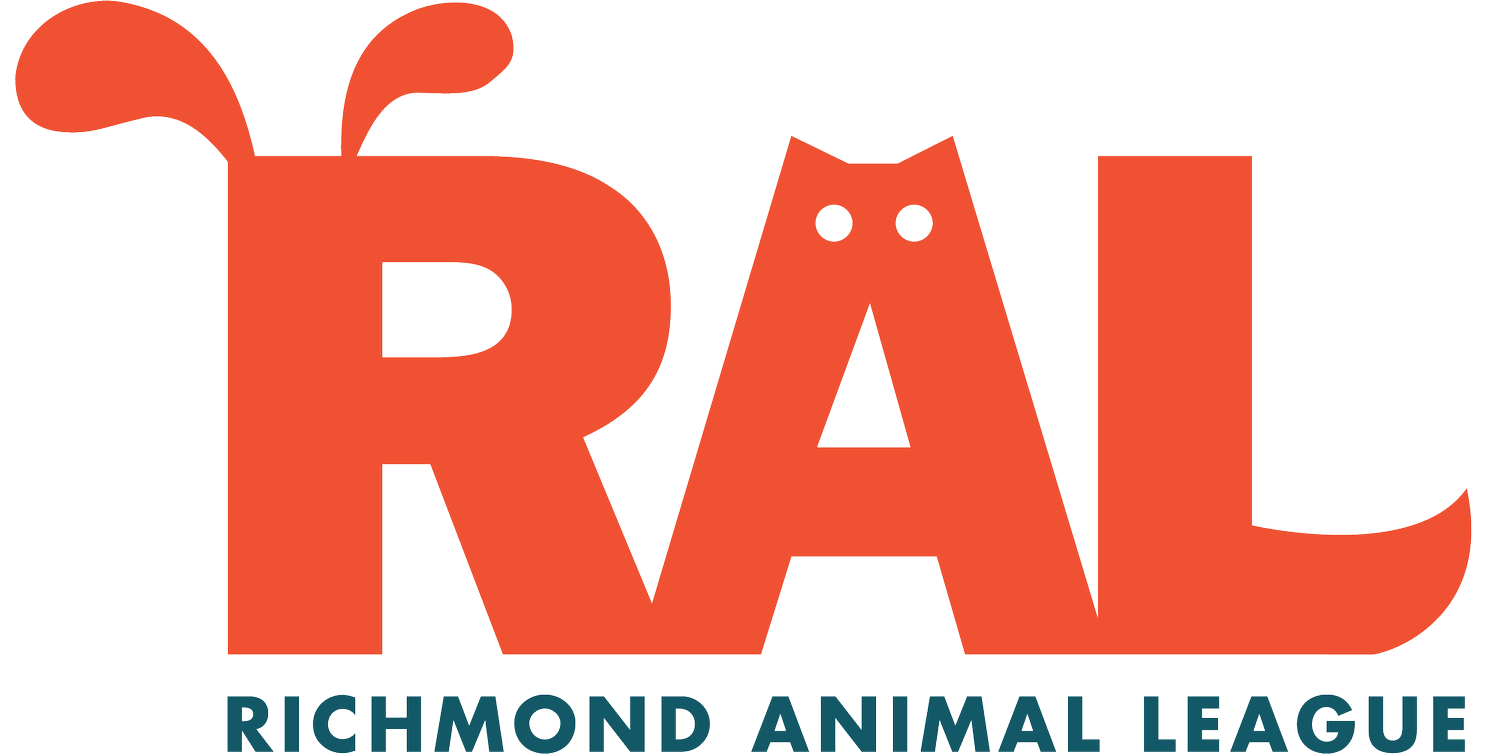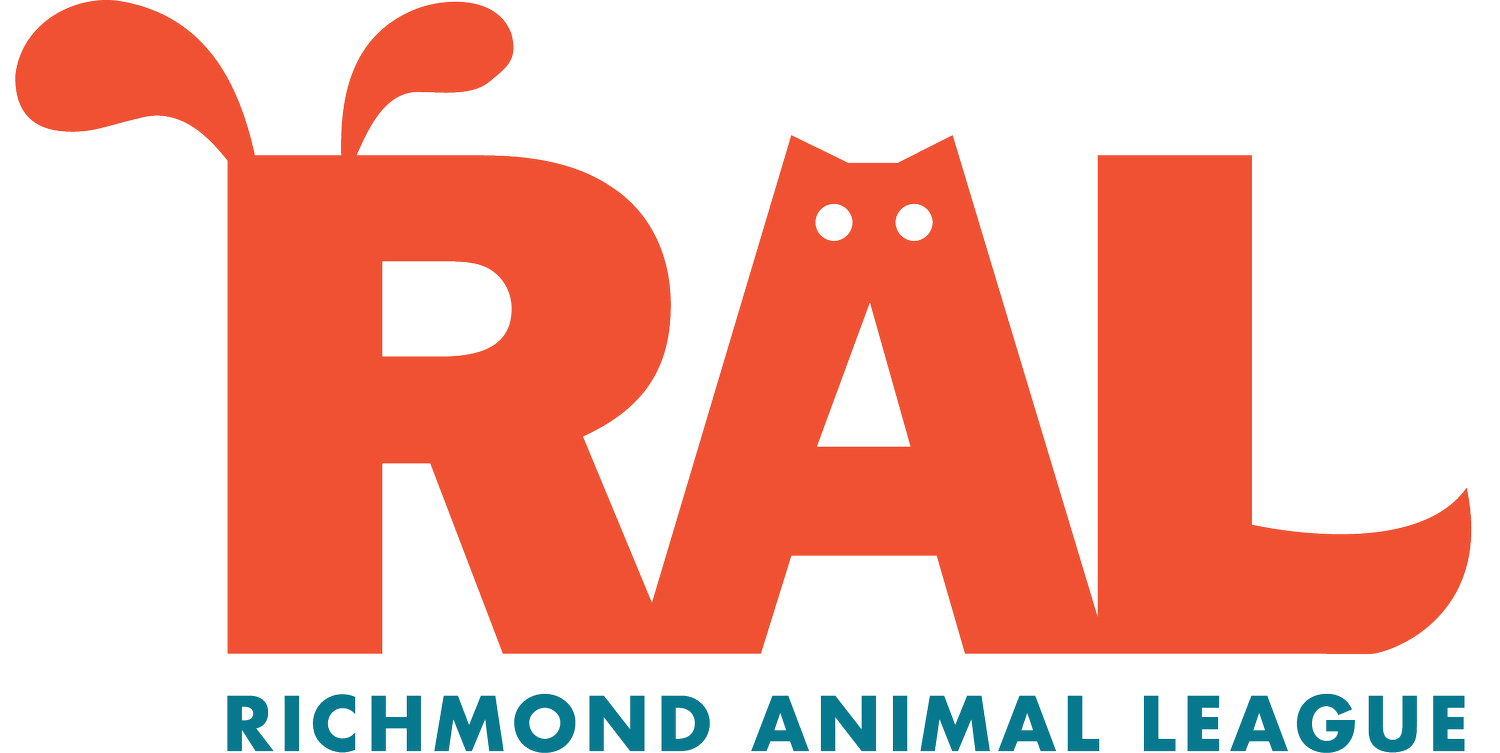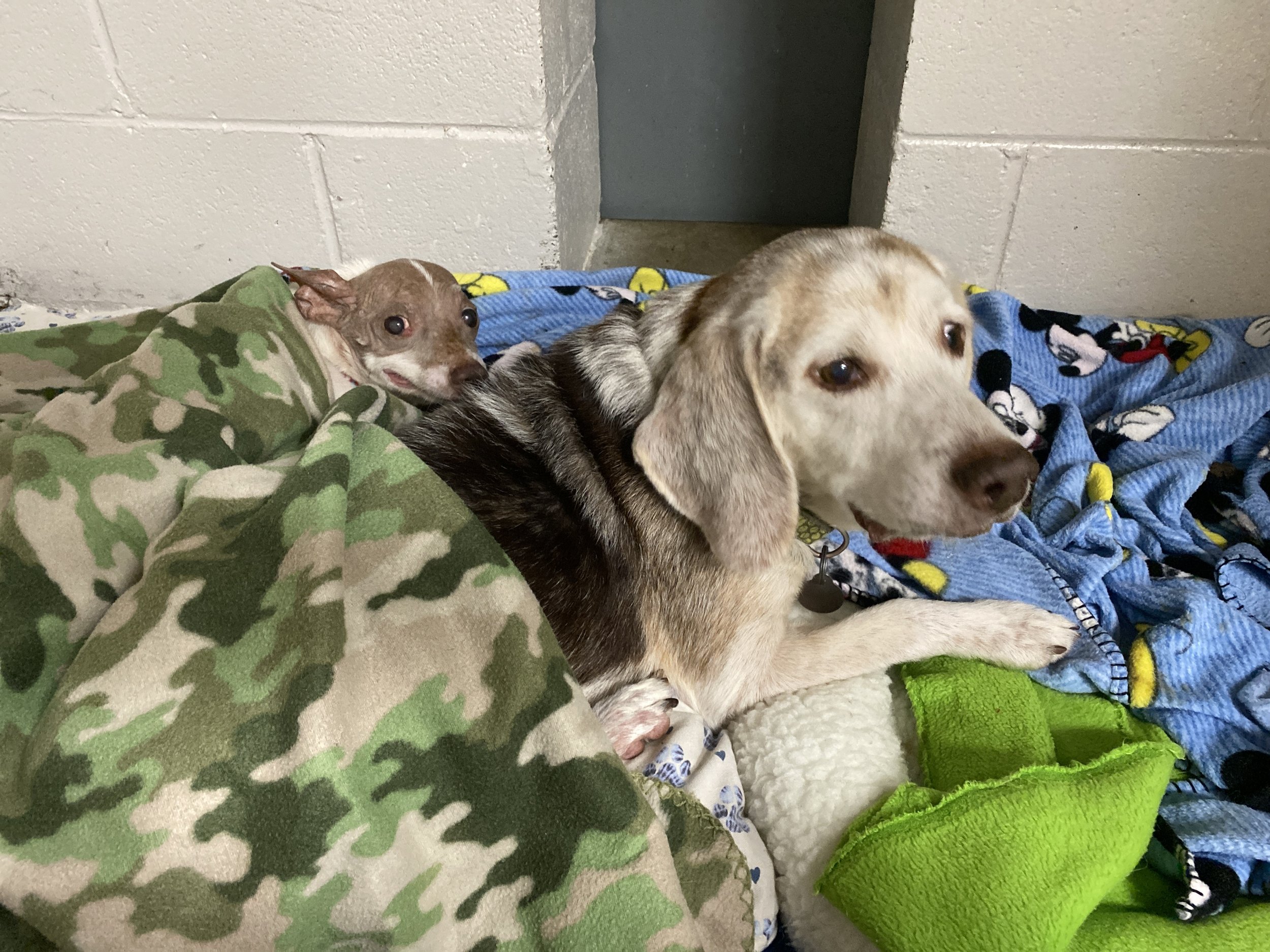Canine Influenza Impact at RAL
What is canine influenza?
Canine Influenza Virus (CIV), also known as dog flu, is a contagious respiratory disease caused by two types of viruses, H3N8 and H3N2. The strain identified in Richmond is H3N2. CIV is different from the seasonal flu that affects humans. There is no evidence of CIV infection spreading from dogs to people.
The virus typically causes mild to moderate symptoms, and most dogs will recover within two to three weeks. Secondary infections, which lead to more severe illness or pneumonia, may develop in some dogs, but this is less common.
For more detailed information about canine influenza, see our blog.
How has RAL been impacted?
Brooks & Dunn snuggled up as they receive supportive care.
Richmond Animal League has two confirmed cases of H3N2 canine influenza in our current dog population and other dogs in our shelter with symptoms. We are treating all dogs with symptoms with supportive care for CIV, whether confirmed positive or not. There is no specific treatment currently for CIV. Supportive care is provided to help affected dogs while their immune system fights off the infection.
What is RAL doing?
It is likely that all RAL dogs already have or will get CIV, given the kennel environment. Therefore, our primary goals during this period are to limit the spread and to take care of the health and well-being of the dogs in our care.
We are pausing intakes of new dogs for approximately 21 days. Our goal is to quickly eliminate the presence of H3N2 from our kennels in order to get back to supporting our shelter & rescue partners with dog transfers.
Our medical team is monitoring all dogs in our care for symptoms and providing any dogs with signs of respiratory illness with supportive care and any additional medical treatment needed.
RAL dogs currently in foster homes are not considered exposed, and their adoption can proceed through our normal adoption process
Our shelter dogs can be adopted by adopters who meet certain conditions and will maintain a 21-day isolation period. Interested adopters with dogs at home or who cannot meet the isolation conditions may apply for dogs in our shelter, but these adoptions may be completed after the 21-day isolation period.
We are limiting the number of people in and around our dogs and the dog kennels to reduce community exposure and to increase rest/reduce excitability. To meet these goals, we are limiting dog volunteer activities.
We are asking staff and volunteers to practice biosecurity by washing hands and changing clothes/shoes before interacting with pets outside our shelter.
Our Loving Spay+Neuter clinic is taking steps to limit the overlap of public spay/neuter appointments and shelter appointments. For more information about our clinic's approach, please see this handout.
We are continuing cat intakes, adoptions, and volunteer activities as usual.
These steps are vital to get RAL back to supporting our shelter & rescue partners and our community. We appreciate everyone’s support during this time and will continue to post updates as the situation evolves.



